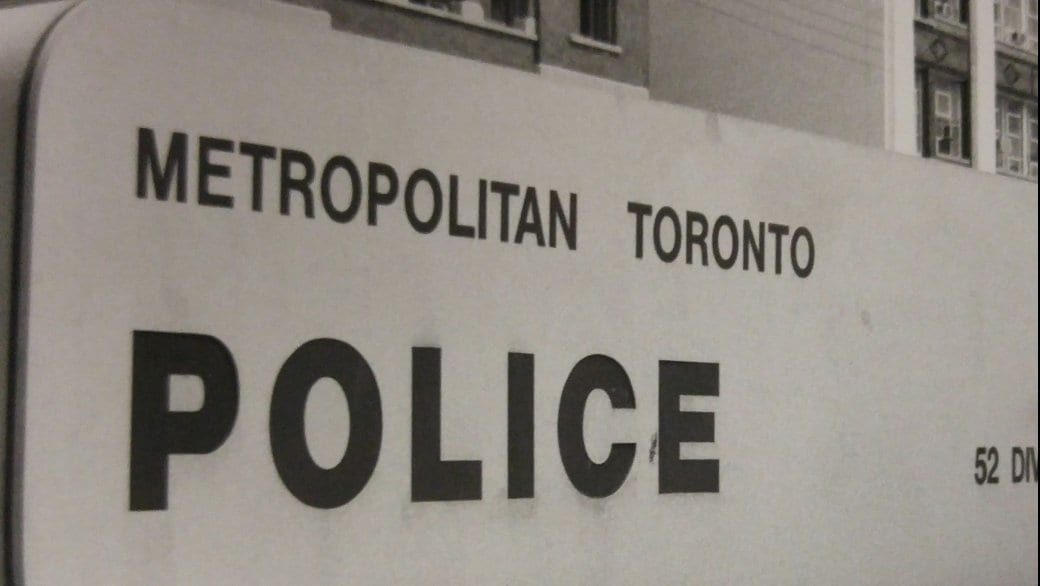In the days since the death of former Toronto police chief Bill McCormack, there’s been much talk of his legacy; as a family man, as a homicide investigator, as the city’s first Catholic police chief.
But like all chiefs before and after him, McCormack, who was Toronto’s top cop from 1991 to 1995, was a deeply controversial figure.
Some of the scrutiny he endured during his tenure was relatively silly and inconsequential. When he assumed the post, McCormack came under fire for donning war medals that he wasn’t entitled to wear, technically a criminal offence. The RCMP refused to bring charges forward and the city moved on.
Other actions, however, were deeply serious.
At the same time that the war medals controversy was ongoing, the Toronto police began conducting a covert surveillance campaign on members of the civilian oversight board charged with holding them to account.
That secret investigation didn’t become public until 2007, when a leaked document detailed the surveillance. In 2010, journalist Derek Finkle, published an explosive series in Eye Weekly that exposed just how far-reaching, illegal and damaging the surveillance had been.
The roots of the surveillance campaign were brazenly homophobic. According to the leaked document, in 1991, Julian Fantino, who was then the superintendent of Detective Services, ordered a secret investigation into Peter Maloney, a prominent gay activist, lawyer and close friend of Susan Eng, the new chair of the police oversight board.
Fantino allegedly gave the order because he saw Maloney in Toronto police headquarters without a visitor’s pass and then discovered that Maloney had been caught up in the 1981 bathhouse raids. Maloney was a co-founder of Club Baths and had been charged during the homophobic raids as a bawdy house owner, though those charges were later dropped.
The surveillance on Maloney soon revealed that other people were using his phone line to coordinate large drug deals. The investigation soon moved past Maloney and morphed into Project Atom, one of the biggest-ever mafia stings in Canadian history (though the charges were mysteriously dropped).
But the surveillance on Maloney continued and it encompassed both Eng and Laura Rowe, the first openly gay member of the board.
Finkle’s Eye Weekly piece revealed police broke the conditions of their wiretap by illegally listening to and recording conversations between Maloney and Eng, some of which were about McCormack, despite the fact that Eng wasn’t under any official investigation.
In 2007, when the first details about this investigation were becoming public, McCormack said he knew about the surveillance, but had only received “very, very, vague” briefings concerning it.
But he later acknowledged to Finkle that he had in fact met with the detective conducting the surveillance and told him that he wanted to know nothing about it.
It’s unknown whether or not McCormack knew about the illegal nature of some of the surveillance. But the fact that Toronto police, with the knowledge of the chief, were surveilling members of the police oversight board, is astounding.
In 2007, the Toronto Police Services Board brushed the entire affair under the rug by asking chief Bill Blair to only look into the source of the leaked document, and not into whether anything illegal or untoward had taken place.
So why bring up this whole mess now?
The coverage of McCormack’s passing has rightly focused on his family and character. And what everyone from Mayor John Tory to current police chief Mark Saunders can agree on is that McCormack was an exceptional officer dedicated to the force.
And that’s what’s worrying.
If McCormack really was the best of the best, and could allow such a brazen abuse of power to occur under his watch, what about the cops who don’t possess the integrity that everyone around him says he had?
That’s one of the reasons civilian oversight and transparency is so essential to an effective fair police force. But City Hall’s continued inability to bring the Toronto Police under anything resembling effective civilian control — see the opaque, secretive police budgets and the insubordinate actions of Blair on carding — show that in this city, the cops still run the show.
And reminding us of that should also be part of McCormack’s legacy.

 Why you can trust Xtra
Why you can trust Xtra


